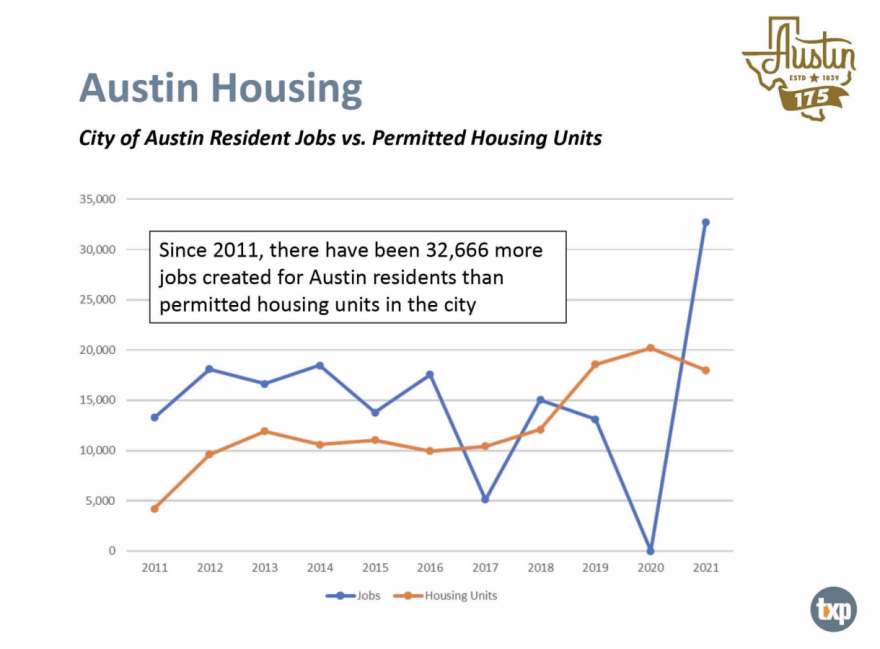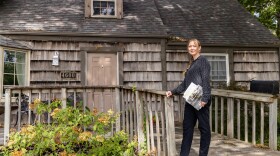Tenants bidding on a rental home. Potential homebuyers offering $200,000 more than the listed price. Nearly 90 prospective buyers angling for one home.
While these are just anecdotes, the data bears it out: The median sales price of a home rose more than $100,000 earlier this year, and rents have been climbing at the fastest rate ever recorded.
The problem, experts say? Too few homes for too many people.
“The message we’re trying to send is pretty straightforward,” Jon Hockenyos, president of the economic policy firm TXP, told Austin City Council members Tuesday. “We need more housing supply.”
The number of people moving to the city has outpaced the number of homes being added, according to data Hockenyos compiled from the City of Austin and the Texas Workforce Commission. Since 2011, Austin has built (or rather, permitted to build) nearly 33,000 fewer homes than the number of new jobs created.

“I think there’s general agreement that we need more housing supply,” Council Member Ann Kitchen, who represents South Austin, said. But how to do that has been a testy line of debate.
“We can all agree that we need to increase supply, but that is not a sophisticated enough approach to policy if we actually want to address the challenge that is before us,” Council Member Alison Alter, who represents West Austin, said.
The zoning regulations that apply to most of Austin typically allow builders to construct only one house on a piece of land — sometimes with a backhouse. For nearly a decade, the city’s been trying to rewrite the land development code to allow developers and property owners to build more housing. But in 2019, a group of Austin landowners sued the city over how it was handling revisions to the land code; the case is currently before an appeals court.
In lieu of citywide revisions, council members agreed to focus on changes with less potential for political pushback. On Tuesday, members spent hours pinpointing new policies they believe could produce more housing, with the hopes of alleviating the city’s surging housing costs.
Council members took no action Tuesday; instead, they focused on weighing support for them. They could begin voting on policy changes as early as next week.
Here are some of their ideas.
Allowing housing to be built where you can build only commercial
Mayor Steve Adler and Council Member Alter have suggested changing the city’s land code to allow developers to build housing where they currently can build only commercial property. In exchange, developers would have to make a certain number of the housing units income-restricted or available only to people making below Austin’s typical income.
Making it easier (and cheaper) to build accessory dwelling units
Homeowners can build these ADUs — also called granny flats or backhouses. — in their backyards, although the process can be expensive. It’s unclear how much additional housing this would actually create, though.
In a memo sent to council members this summer, city staff also cautioned that the cost of building an ADU was something low- and moderate-income homeowners could not afford to do, and that in some parts of the city private deed restrictions — which the council has no jurisdiction over — do not allow property owners to build backhouses.
Improving the city’s permitting process
The process to get a permit to build or remodel a home has long been characterized as a headache: long wait times, confusing processes and hefty fees. While they didn’t go into much detail, council members said they intended to lessen some of these problems, with the intent of quickening the pace at which it takes to build new housing.
Advocating for universities to build more student housing
Several council members said that universities, including UT Austin, need to be providing more student housing.
“There’s a big chunk of those students that we could get out of the general housing pool and into campus housing if we can work with UT and other universities to get that,” Alter said.











